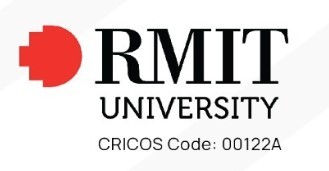
Bachelor of Engineering(Chemical Engineering)(Honours)/Bachelor of Pharmaceutical Sciences


Overview
Duration
FULL-TIME 5 YEARS
FULL-TIME 5 YEARS
Scholarship
YES
YES
Fee
AU$46,440
AU$46,440
Intake
FEBRUARY, JULY
FEBRUARY, JULY
Overview
- Get ready for a fulfilling career in chemical engineering and pharmaceutical sciences.
- As the pharmaceutical industry expands in Australia and world-wide, your understanding of the engineering process and other scientific fields involved in drug development and production, will ensure you’re well equipped to work across a range of roles.
- You’ll gain a thorough understanding of the principles of chemical engineering and pharmaceutical sciences, allowing you to apply your knowledge to large scale production in the pharmaceutical industry.
- You’ll have the opportunity to design creative solutions through inspiring and sustainable design-and-build projects, as well as taking part in the Engineers Without Borders Challenge — a humanitarian-focused course offered in all RMIT engineering degrees.
- To ensure you graduate job-ready, you’ll also have an opportunity to undertake a work-integrated learning (industry experience) elective.
Inquire Now
Career
- As a graduate of the Bachelor of Engineering (Chemical Engineering) (Honours) / Bachelor of Pharmaceutical Sciences, major employment areas are to be found in:
- the chemical, petroleum, and petrochemical industries
- the food industry
- water
- environmental management and pollution control
- mineral and metallurgical industries
- plastics/polymers
- biomaterials and diagnostic agents
- pharmaceuticals and vaccines
- cosmetics
- electricity and gas utilisation
- research and development
- project design and consulting.
- Graduates have gone on to work at a range of organisations including:
- Basell
- BP
- Cadbury
- Cryovac
- CSL
- CUB
- ExxonMobil
- Kraft
- Moldflow
- Rio Tinto.
Entry Requirement
- To study this course you will need to complete one of the following English proficiency tests:
- IELTS (Academic): minimum overall band of 6.5 (with no individual band below 6.0)
- TOEFL (Internet Based Test - IBT): minimum overall score of 79 (with minimum of 13 in Reading, 12 in Listening, 18 in Speaking and 21 in Writing)
- Pearson Test of English (Academic) (PTE (A)): minimum score of 58 (with no communication band less than 50)
- Cambridge English: Advanced (CAE): minimum of 176 with no less than 169 in any component.
Popular Courses
Start your journey with landmark today!
Find your perfect course
Answer a few questions and
our course matcher will do the rest
Head Office
Level 5, IT Plaza
Kamaladi, Kathmandu
Tel: +977 14542781, 9845566225
E-mail: info@landmarkedu.com
Kamaladi, Kathmandu
Tel: +977 14542781, 9845566225
E-mail: info@landmarkedu.com
Sydney office
Level 2/552 Princess Highway,
Rockdale, NSW 2216,
Tel: +61 415 122 814
Rockdale, NSW 2216,
Tel: +61 415 122 814
Branch office
Sahidchowk, Chitwan
Tel: 056-590825
Tel: 056-590825
Mahendrachowk, Biratnagar
Tel: 021-590828
Tel: 021-590828
Level 2, Milanchowk, Butwal, Rupandehi
Tel: 977-71-591694
Tel: 977-71-591694
© Landmark Education. All rights reserved.


